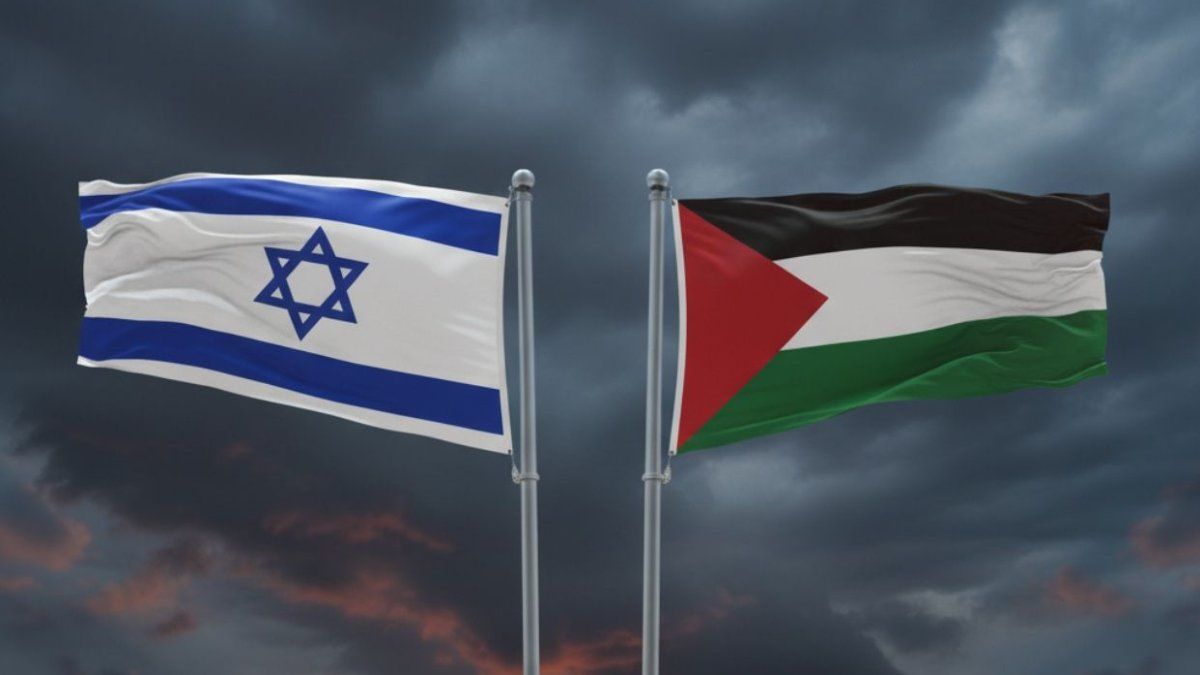After the UN Security Council failed again to pass a Gaza resolution, the UN General Assembly has now taken over again. The demand is symbolic, but provides a picture of the mood.
The UN General Assembly has passed a resolution calling for an immediate humanitarian ceasefire in the Gaza Strip. The paper introduced by Egypt achieved the necessary two-thirds majority in New York. 153 countries voted in favor, 10 against. 23 countries abstained, including Germany.
The resolution presented Germany with “a difficult decision,” the Foreign Office said via the short message service X, formerly Twitter. “We want to end the unbearable suffering of people – in Israel and in Gaza.”
The resolution calls for a “blanket ceasefire, but does not say why Israel is forced to defend itself: Because Hamas barbarically attacked Israel on October 7th. And because Hamas wants to continue to destroy Israel.” That’s why Germany couldn’t agree – but because they wanted to work to end the suffering of the Palestinians, they couldn’t vote against it either.
UN General Assembly resolutions are not legally binding but are considered symbolic. They also provide a glimpse of the mood in the world: In addition to the Arab world, a large proportion of the countries in the global south voted in favor. The countries of the European Union presented a different picture: while Germany, for example, also abstained, France and Greece, among others, voted in favor. In addition to Israel, the no votes included the USA, Paraguay, Austria and Guatemala.
“Catastrophic humanitarian situation”
In total, 153 countries voted for the resolution, significantly more than at the end of October, when 120 countries in the UN General Assembly voted for a resolution to improve the humanitarian situation and for an immediate ceasefire in the Gaza Strip. At that time, 14 voted against and 45 abstained, including Germany. The UN General Assembly has 193 members, but for various reasons not everyone always votes.
With its call for a lasting ceasefire, the resolution that has now been passed goes well beyond the previous call for at least a temporary ceasefire. The paper also expresses great concern about the “catastrophic humanitarian situation” in the Gaza Strip and calls for the immediate and unconditional release of all hostages.
Additions had previously been introduced to the resolution which, among other things, clearly mentioned the Islamist Hamas and clearly condemned the massacre of October 7th. However, these failed to achieve the necessary two-thirds majority.
Israel criticizes UN General Assembly vote
Israel criticized the UN General Assembly’s call for an immediate humanitarian ceasefire in the Gaza Strip. “Hamas has committed terrible crimes and those who support a ceasefire enable Hamas to continue to survive and commit more atrocities,” Israeli UN Ambassador Gilad Erdan said during the UN General Assembly session.
He also called on those present to call the head of Hamas in the Gaza Strip, Jihia Sinwar, and demand that he lay down his arms, surrender and release all hostages. “Then there will be a real ceasefire that will last forever.” Erdan also held a sign with the phone number of the Hamas office.
Guterres urges UN Security Council
The more powerful UN Security Council, whose resolutions are binding, failed again last week to pass a ceasefire resolution. The body had so far only adopted one resolution with a humanitarian focus on the conflict, mainly because the US had always supported Israel. The adoption of the resolution by the UN General Assembly is also a reaction to what is happening in the Security Council.
UN Secretary-General António Guterres had personally urged the UN Security Council to support such a humanitarian ceasefire. In a corresponding letter to the Council, he referred to Article 99 of the UN Charter. This allows the Secretary General to draw the attention of the Security Council to “any matter which, in his opinion, may jeopardize the guarantee of international peace and security” and, according to the UN, had not previously been used for decades.
Source: Stern
I have been working in the news industry for over 6 years, first as a reporter and now as an editor. I have covered politics extensively, and my work has appeared in major newspapers and online news outlets around the world. In addition to my writing, I also contribute regularly to 24 Hours World.




